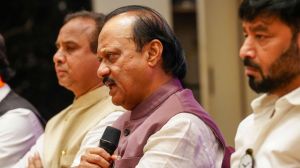Outcome: Transparency
Outcome Budget 2005-06 8212; the first exercise of its kind 8212; is an excellent idea. Presented in Parliament on Thursday, it attempts t...

Outcome Budget 2005-06 8212; the first exercise of its kind 8212; is an excellent idea. Presented in Parliament on Thursday, it attempts to link government expenditure to expected outcomes. It is essentially a pre-expenditure instrument which lists what is going to be delivered by the government to the public and by when. The next step would be a review of whether these 8220;quantifiable deliverables8221; were achieved. An outcome budget is important because it emphasises that what matters is the number of children vaccinated and not money spent on vaccination programmes. Considering the record of governments in spending money without any accountability, this is a much needed step towards expenditure reform and increases transparency and accountability in public spending.
Union budgets have routinely focused on taxation, and there have been many tax reform measures undertaken in the period of economic reforms. Expenditure reform, in contrast, has been a neglected area. Now, by focusing attention on what the government is delivering to the public, the Outcome Budget should help focus on the government8217;s tasks and whether they are useful. For example, the Outcome Budget shows that the Agro and Rural Industries will spend Rs 96 crore for khadi. Of this, Rs 72.76 crore is to provide rebates for the sale of khadi. Is this good use of taxpayers8217; money? A question like like this raises its head precisely because expenditure is made transparent. There is, of course, scope for improvement. Outcome budgets need much clearer physical deliverables than is the case at present. If implemented correctly, exercises of the Outcome Budget, year after year, should lead to better measurement and monitoring. The expenditure on the Sarva Shiksha Abhiyan, to take one instance, is Rs 7,800 crore. The objective is 8220;enrolling all the 8.13 million out of school children in regular schools.8221; The outcome will 8220;be reported by 31/12/20058221;. Assuming that this is achieved, the next step after enrolment must be on how many children can read and write. This will require new methods of measurement, standardised tests and scores to examine the outcome of the money being spent on primary education. Eventually this exercise could help improve efficiency.
The Outcome Budget is, without doubt, an important initiative and a good start. It needs to be fine-tuned for better results. Ultimately, it is about how the same outcome can be achieved by spending less money and how better outcomes can be gained by spending the same money.
- 01
- 02
- 03
- 04
- 05































